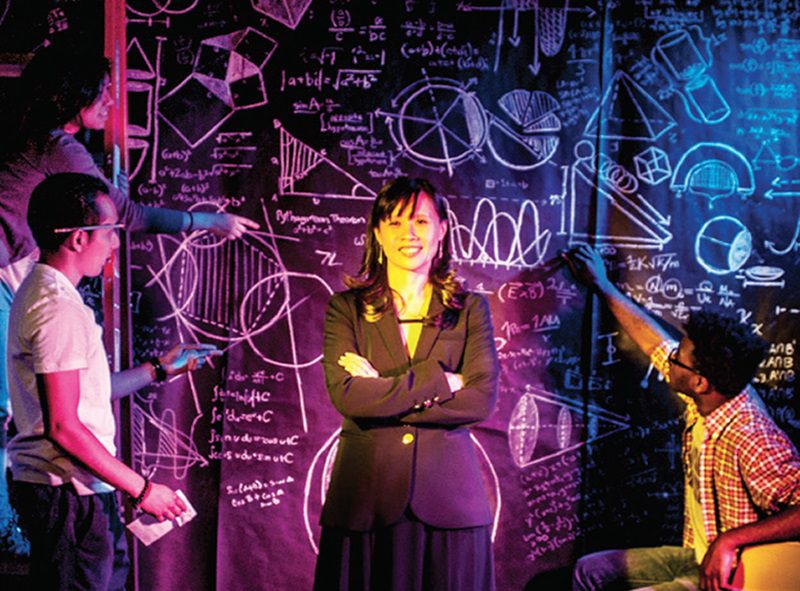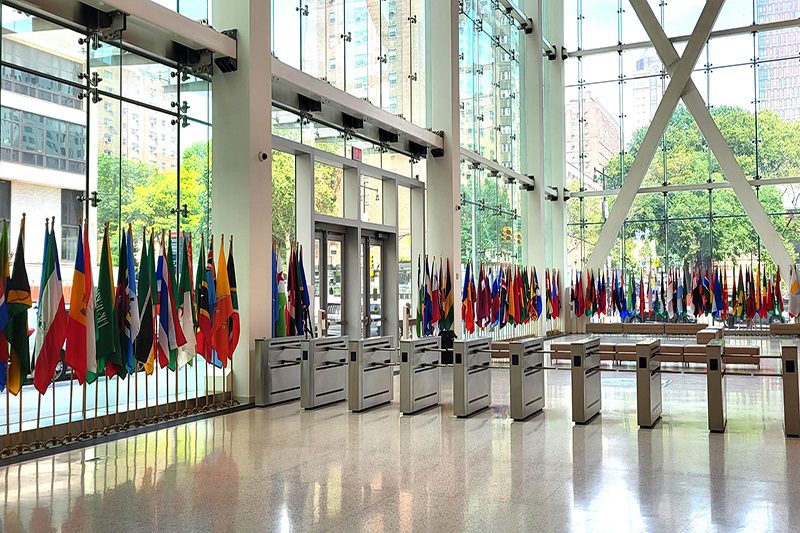The New York College of Technology (City Tech) is more than just an educational institution. This is the gateway to a world of opportunities, where ambitious individuals can obtain a high-quality education, as well as the skills and experience required to succeed in a rapidly changing technological environment. Learn more at manhattan-future.
City Tech takes pride in offering an affordable education while adhering to strong academic standards. The school provides a variety of undergraduate and junior specialist programs that aim to provide students with the skills and knowledge they require to be successful in their chosen careers.
The approach to education here is practice-oriented. It is considered that theoretical knowledge is most effective when it is accompanied by practical experience. That is why on-the-job training, internships and other forms of practical training are given top priority, allowing students to apply their knowledge in real-world situations.
City Tech not only teaches students how to solve technical challenges, but it also helps them build critical thinking skills, problem-solving abilities and social awareness, all of which are necessary for success in the modern world.
Interdisciplinary approach and creative teamwork
Interdisciplinary cooperation and the exchange of ideas are critical for innovation and creativity. City Tech promotes collaboration among students, educators and specialists from different fields, allowing them to discover novel solutions and methods for problem-solving.

Photo source: https://commons.wikimedia.org/
City Tech encourages diversity and fosters an inclusive environment in which all students are treated with respect and valued in their pursuit of knowledge. It establishes a framework for building a community in which everyone may learn, grow and prosper.
History of the establishment and development of the New York City College of Technology
1881: The Technical Schools of the Metropolitan Museum of Art was renamed the New York Trade School to more accurately reflect its curriculum after the art education program was relocated to a separate school.
1892: Financier John Pierpont Morgan invested heavily in the New York Trade School. Over the next 60 years, it rose to prominence as the nation’s leading vocational school for American youth, serving as a model for other vocational schools.
1946: The New York State Institute of Applied Arts and Sciences was established to meet the demands of business, industry and professions for highly skilled technicians and other professionals in the postwar economy.
1953: The institution changed its name to New York City Community College, making it the first community college in the city.
1961: The New York Trade School became a technical institute after a charter amendment. It was renamed Voorhees Technical Institute after prominent industrialist Enders M. Voorhees, who chaired the board of trustees. Thanks to the charter, the school was able to award junior degrees in applied sciences and operate as a two-year college. In September, the introduction of the AAS in Nursing took place.
1964: New York City Community College became part of the City University of New York (CUNY).
1965: Voorhees Technical Institute started admitting female students.

Photo source: https://www.citytech.cuny.edu/
1971: Voorhees Technical Institute became a part of New York City Community College. In March 1971, the AAS in Accounting was first introduced.
1973: January saw the introduction of the AAS in Dental Hygiene. The AAS in Radiologic Technology & Medical Imaging was introduced in February.
1980: The City College of New York was recognized as a technical institute within the CUNY system and changed its name to New York City Technical College (City Tech). There were 27 career programs available.
1983: New York City Technical College was granted permission to award the first Bachelor’s degree in Hotel and Restaurant Management. In July, the BTech in Hospitality Management was introduced.
In June 1991, the Bachelor of Science in Paralegal Studies was introduced.
In August 1993, the BTech in Computer Engineering Technology was first introduced.
July 1995 saw the introduction of the Bachelor of Technology in Entertainment Technology was introduced.
In February 1998, the Bachelor of Fine Arts in Communication Design was introduced.
2000s:
2002: New York City Technical College was renamed New York City College of Technology in 2002, and it began offering professional undergraduate, junior specialist and specialist certifications in art and design, business, human services, the law-related professions, computer systems, health care, engineering, entertainment, hospitality, career and technology teacher education and liberal arts and sciences.
2004: Russell K. Hotzler, Ph. D., became the eighth president of the College. The bachelor’s degree in Health Services Administration was introduced.

Russell K. Hotzler, eighth president of the New York City University of Technology. Photo source: https://en.wikipedia.org/
In 2005, the BS in Nursing was introduced.
2010: The introduction of the BTech in Mechanical Engineering Technology.
2011: The introduction of the BS in Radiological Sciences and BS in Mathematics Education were introduced.
In May 2012, the bachelor’s degree in Biomedical Informatics was introduced. The number of full-time teachers surpassed 400, marking a 50% increase in 7 years.
2013: The BTech degrees in Electrical Technology and Construction Management were introduced. For the first time, students receiving a bachelor’s degree outnumbered the students receiving an associate degree.
2014: Construction began on a new academic complex at the corner of Tillary and Jay Streets, on the site of the former Klitgord Building (estimated completion date 2017). The new building was designed to include healthcare and science programs, a new theater and gym, a cutting-edge health and wellness center and the necessary office space for professors.
The bachelor’s degree in Professional and Technical Writing was introduced.
In July, 2015, the Bachelor of Science in Applied Chemistry was introduced.
In October 2016, the Bachelor of Science in Business and Technology of Fashion was introduced.
In 2019, The New Academic Complex, featuring new laboratories, clinics and classrooms, was opened. The Bachelor of Science in Data Science was introduced.
In February 2020, the 5-Year BArch program was introduced. In June, the BS in Data Analytics/Economics was introduced.
2021: In March, the Bachelor of Science in Healthcare Policy and Management was introduced.

Photo source: https://www.citytech.cuny.edu/.
2022: In August, the BTech in Architectural Technology program was introduced.
The fall of 2022 was marked by the opening of the Student Success Center, YellowJacket N.E.S.T. (which stands for Nutrition for Education and Student Achievement), the Fitness Center and Student Wellness Center.
In the spring of 2023, Textile Lab was opened.
Conclusion
The New York City College of Technology has come a long way since its inception in 1881 as the Metropolitan Museum of Art. It has undergone various changes over its history, but its dedication to providing accessible and high-quality education to students from all backgrounds remains unchanged.
Today, City Tech is a leading institution for professional and technical education, offering a diverse range of bachelor’s, junior specialist and certificate programs. The college is proud of its diverse student community and its graduates who have excelled in various fields. City Tech continues to evolve and adapt to meet the changing requirements of its students and society.